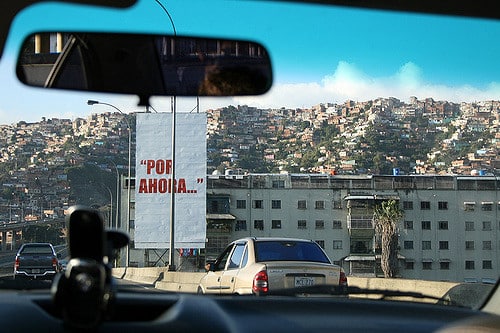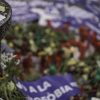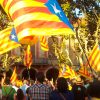
Chavism, now in its advanced (or retrograde?) phase of ‘Maduroism’, has destroyed a country. It attained power through the ballot box (preceded by Hugo Chávez’s attempted coup) with a mandate to ensure a fairer distribution of the nation’s wealth and to do away with the corruption of the previous regime. It did redistribute, but it has been incapable of generating wealth. It swapped one corrupt situation for another. And it rode roughshod over the rule of law and democracy, the most recent step being the Constituent Assembly elections and the decisions that this body is starting to take. The damning statements made by Luisa Ortega Díaz, Venezuela’s former Prosecutor General, about the regime’s modus operandi, are revealing.
Is there a negotiable way out? There is a balance of forces and interests created by the regime that seems to hinder it. Institutional violence and deaths cast a long shadow. After what has happened with the Constituent Assembly it is hard to believe that the end of the regime will come through the ballot box, although the so-called ‘electoral endgame’ would be the desirable one. Power lies not in street clashes, but in a complicit army and armed paramilitaries, as well as groups of gangsters. The regime’s internal contradictions could bring it down, but it would be unwise to bank too heavily on this, particularly since the military did nothing to prevent the fraud of the Constituent Assembly, which will give them more power.
In terms of the international context, it is essential for the pressure and the dialogue to work. Regardless of the pressure exerted by the EU, the solution if civil war is to be avoided, as has been pointed out, will be ‘Latin American for a Latin American problem’. But there is division on this point. Mediation efforts, like that of José Luis Rodríguez Zapatero, have their uses, but they need more international support. It is a moot point whether sanctions can leave their mark on the regime, despite the country’s economic weakness. They need time to take effect, particularly if they are going to hit those in power rather than the general public.
Perhaps a glimmer of a solution lies outside Venezuela, not so much in the efforts of its neighbours, near and not so near, but rather a country and a regime wielding a good deal of influence in Venezuela, namely Cuba (notwithstanding the fact that Caracas supplies cheap oil to Havana). The Spanish Minister of Foreign Affairs, Alfonso Dastis, will have taken soundings on his visit to Cuba. All this is complicated by the attempts of Russia, no longer communist but still at loggerheads with the US in geopolitical terms, to strengthen its hand in Latin America, particularly in Venezuela, where loans from the Russian oil firm Rosneft to Petróleos de Venezuela (PDVSA) have staved off the latter’s collapse.
Perhaps the regime will self-destruct owing to the disastrous economic management of a country that was once rich –not long since the wealthiest in South America– brought to its knees by a group that, as one Venezuelan observer puts it, ‘lacks a work record but has a criminal record’, which has squandered and pocketed a considerable chunk of the state coffers. The regime has been incapable of investing in the future, and has destroyed a good deal of the present and past. Oil exports –accounting for 90% of the country’s total– have suffered through mismanagement and the fall in the crude oil price. The IMF is forecasting that hyperinflation will reach 720% this year. The queues to buy what there is by way of food, not to mention sanitary and other basic products, are now part of daily life, with a shortage of essential medicines not only in pharmacies but even in hospitals. People are going hungry. And it does not seem likely that anything will improve in this regard over the short to medium term, despite Nicolás Maduro’s proud boasts. Many people want to leave the country, one destination being Spain, where applications from would-be immigrants have shot up. The ‘Bolivarian Revolution’ has been a failure, even more pronounced under Maduro: his predecessor had already engineered a calamity but, as Marx might have said, it has now become a tragic farce.
Perhaps, as the Argentine commentator Jorge Argüello of the Fundación Embajada Abierta argues, it will be necessary to take things in reverse order: ‘first focusing on the consequences of the crisis, aggravated by the strong and decisive influence of military power on Nicolás Maduro’s government, and then the causes, as occurs in catastrophes’. But this will not resolve the political impasse.


